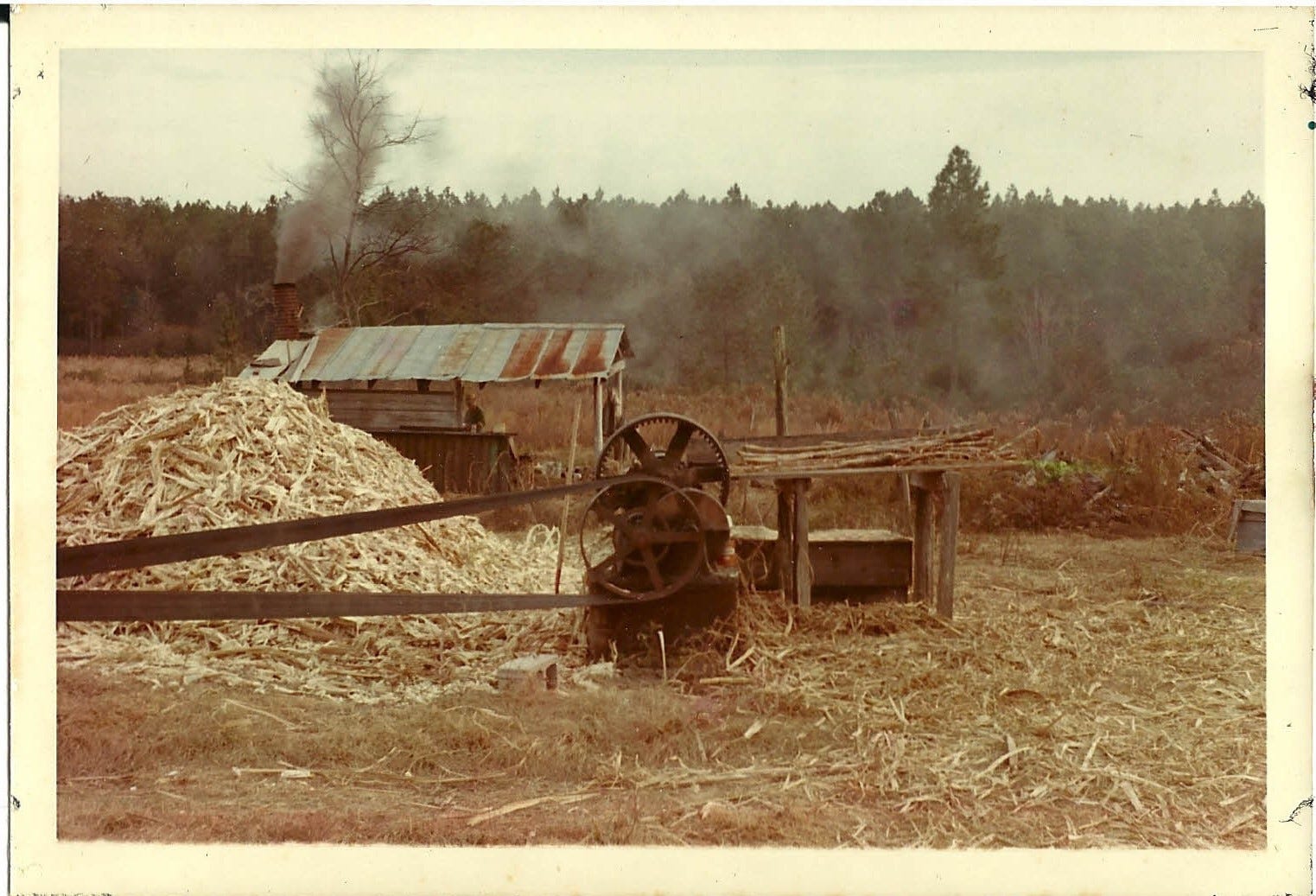ESCAMBIA FARMS — For more than 80 years, the Youngblood family gathered sugar cane before winter and produced a southern delicacy called syrup using a cane mill that has been a part of the family since the 1950s.
On Nov. 17, the mill ran for the last time.
Syrup making only comes once a year for the Youngblood family since David “Ray” Youngblood passed away in 1993.
This family tradition begins with the cane mill heating up at dusk and runs until about noon.
With a pan of fresh biscuits and musical talent from Mississippi, the Youngblood family gathers together and makes about 80 gallons of syrup.
David Youngblood Jr. and his brother, DeWayne Youngblood, do most of the syrup making. Both face health issues that prevent them from continuing their father’s work any further.
“You have no idea how hard it is to do, how much work goes into making (syrup),” David Jr. said. “…I don’t think there’s anybody that’ll every come along to do it.”
The history of syrup making for David Jr. and his siblings dates back to World War I and ties into the history of Escambia Farms.
In the early '30s, the country fell into worst economic depression in history known as The Great Depression. The stock market crashed and banks began failing.
Families across the nation were suffering, many of them unable to afford food and housing. President Franklin D. Roosevelt created the Resettlement Administration, which was used to relocate families to government planned communities.
The federal government acquired land in Okaloosa County, and part of this land became Escambia Farms.
David “Ray” Youngblood, who served in World War I, and his wife Annie Mae were enlisted into the Escambia Farms project.
David Jr. said the government built houses, a school, a general store, a cold storage unit for farmers, a sowing factory and the cane mill.
With a need to make money, Ray began farming and sold his produce at the general store, which is now the Blackman County Store located on the corner of Highway 189 and Red Barrow Road.
During WWI and the Great Depression, sugar rationing became necessary, and syrup became the only type of sweets they had.
“They learned how to make a lot of things from syrup,” David Jr. said.
The Resettlement Administration fell through in 1937, but many of the programs remained through the Farm Security Administration.
Because the government project failed, David Jr. said his father and another man purchased the general store and sold syrup. The store went bankrupt a couple years later.
In the early to mid '50s, David Jr. said his parents decided to buy their own cane mill and sold syrup to farmers in the Escambia Farms community.
“They made a living, but barely,” David Jr. said.
Along with syrup, the Youngblood family farmed cotton and many types of produce on their 290 acres of land.
“You just scratch out a living where you can, and it was hard times for them,” David Jr. said. “They were just old dirt farmers.”
Ray may not have made much money off making syrup, but that didn’t keep him from continuing on.
David Jr. said his father would make about 100 to 110 gallons every day from 4 a.m. until dark.
“He did it until he couldn’t,” David Jr. said.
David Jr. and DeWayne learned the trades from a young age by watching their father make syrup. After Ray’s passing, David said making syrup once became less about money and more of a family gathering.
Emotions run high for David Jr. as he thinks about never making syrup again.
“It is sad,” he said. “Time marches on. It waits for no man.”
Not knowing this year would be the last they make syrup, David Jr. wrote in a Facebook post last year, “Now, the mill sits again silent to wait another year. Who knows when time weathers, and there will be no ‘another year.’”
Although “another year” may never come, the memories will always remain.
This article originally appeared on Crestview News Bulletin: The Youngbloods fire up the cane mill for the last time
